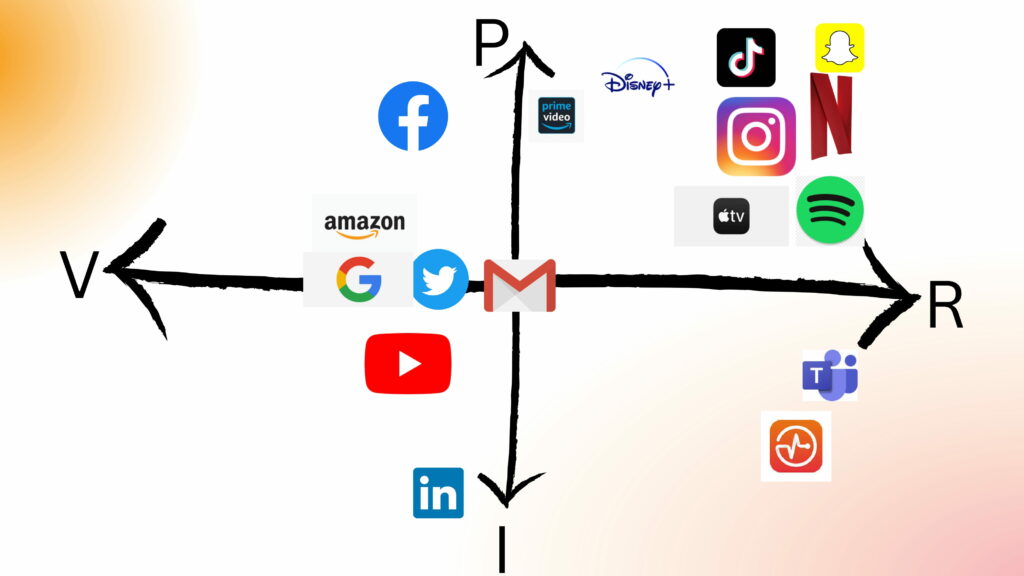What is a digital identity?
A digital identity like Eric Stoller (0.25) said is like your footprint on the web. It’s something that is traceable and has good and bad benefits. Some of the good benefits are that it makes it easier to promote ourselves, employers might look you up on social media and get to know more about you than just what they would have found out from an interview. The downside is that employers learn more about you, if you do not ensure that you accurately portray how you want to display yourself on social media you could lose your job or not get hired because of it.
Your digital identity is an accumulation of your presence on the internet it includes both things that you post as well as things that other people have posted of you. Everything that has been accumulated on your digital identity is usually pretty easy to find even if it is on a private account. I googled my name just to see what would pop up and unsurprisingly my Instagram account was the first thing to pop up. However, there were some things that I had forgotten that I have even done that popped up like a podcast I recorded in 2020, a Prezi that I had made in 2019, and photos of me that are linked to my parent’s Twitter accounts. This just goes to show the impact of digital identity, and even if you forgot you even posted something it might be one of the first things that pop up when you google your name.
How do personal versus professional approaches to digital identity affect social media use?
I find especially with today’s social media, these two overlap substantially. Just reflecting on writing my Digital Identity exercise, I point out that I am always cautious of what I post because of the saying the internet lives forever. Once something is posted it is near if not impossible to entirely remove something, I have seen ways to access your old Instagram bios (yes, ones that have been written almost 10 years ago) just by accessing your own account history. This could affect your professional social media usage because everyone has access to what you have posted even if it is on a personal account. Additionally, most co-workers follow each other on social media and not just on professional accounts but also on personal accounts. Due to this, your personal posts can easily affect how your co-workers perceive you and may make work situations uncomfortable, especially if you are not thinking before you post online.
How do digital identities converge in networked publics- what are the impacts and benefits?
Digital identities definitely have some big benefits in the networked public, it helps to set the tone of how certain people interact. Obviously, when interacting online with your friends and family you can open up more and express yourself and be more informal. However, in a business setting a digital identity allows you to highlight what you can offer other businesses if they were to hire you and allows you to promote yourself. This only works if you have two separate accounts which is not always practical. Some people might have one account that is personal and is private so only they can dictate who gets to see it. Whereas others might just have a business account that is public, but they are careful about what they post.
I would say with how big of an increasingly social media sites have become in the last 10/20 years that it is something that is relatively new, and something that people need to get educated on. Although digital identities help most people they could be detrimental to others. This is why it is important, especially for post-secondary students to receive training about what they should and shouldn’t share online so that their careers are not harmed.
Can a digital wallet provide trust in networked publics?
I think that the digital wallet especially during Covid-19 has helped a lot of businesses and people. The digital wallet allowed people easier ways to sign forms along with easier banking which helped to limit people’s in-person interactions. There is a fine line however with having a digital wallet and the country intervening and violating privacy rights. This is important however at this point there have been many laws put into place that ensure that the country does not violate these laws. A huge argument was about the effect of vaccine passports, these helped to ensure people were protected from the Covid-19 virus, and in return, they could do certain things that others who were not vaccinated could not do. This allowed the country to see how many people were approximately vaccinated to give them a better idea as to how protected the country is and to also see when the appropriate time would be to lift public health restrictions. This helped the overall safety of the country, and allowed them to find out an accurate percentage of who was vaccinated just by registration numbers and not by accessing personal information. Additionally, in terms of banking many banks have special software systems, as well as duo authorization that ensures that their clients are protected. I do agree that sometimes when using a digital wallet you have to be cautious of the information you provide, but for the most part when they are asking about personal information like where you live, it is used to ensure that this is the right person using the device, or a way to contact someone if something ends up going wrong.
References
Stoller, Eric. “Eric Stoller- What is Digital Identity?” Youtube, uploaded by University of Derby, 2017, https://www.youtube.com/watch?v=u0RryRbJza0
